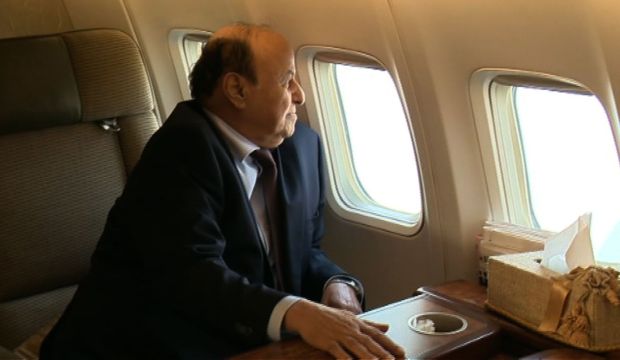On March 26, 2015 Operation Decisive Storm was launched by a coalition of ten countries. It was the first time such a coalition had been formed, something which has redefined the political and military concepts in the region. Saudi Arabia rapidly cobbled together the coalition in a manner unprecedented in the history of the region but in accordance with the international law and at the official request of the legitimate President of Yemen Abd Rabbuh Mansur Hadi. Riyadh set clear goals for the coalition: Protecting the constitutional legitimacy represented by President Hadi; deterring Houthis’ threats against the Yemeni people; destroying the group’s military capabilities, particularly heavy weaponry and ballistic missiles; and removing threats to the security of Saudi Arabia and Yemen’s neighboring countries. With President Hadi’s return to Aden, Operation Decisive Storm has achieved most of its objectives and succeeded in averting the collapse of a neighboring Arab state.
The war against the Houthi coup, aided internally by former ousted president Ali Abdullah Saleh and externally by Iran, was not a choice as much as a necessity imposed on Riyadh which had to lead the coalition so that the tragedies of Iraq and Syria do not repeat themselves in Yemen. The Arab Gulf states have never supported war; rather, they have been known for their tendency towards peace. As the late Saudi Prince Saud Al-Faisal said: “We are not advocates of war; but if the drums of war are beaten, we are ready for them.”
With Hadi and the Yemeni government resuming their duties in Aden, Operation Decisive Storm has successfully achieved more than 95 percent of its goals, proving that it never coveted an inch of Yemeni territory. The stated strategic goals of the Saudi-led coalition have not changed at any time during the war. Coalition members did not organize any hidden conspiracies or employ ambiguous tactics. The coalition has extended a hand for peace even though it is far more militarily superior to its opponents.
The coalition has brilliantly managed to formulate its own political and military vision without relying on the West. And eventually it got the message across to those seeking to tamper with the region and reshuffle the cards: Beware that the region after Operation Decisive Storm is different from what it was before it.
So, what is next after the coalition has achieved its goals? Has the coalition completed its mission in Yemen? It will be the job of Prime Minister Khaled Bahah’s government, now rebuilding its military and security capabilities and restoring stability to the cities of Yemen, to determine the priorities for the next phase. Without doubt, the Houthis are still occupying several cities in Yemen and if Bahah’s government still wants the coalition to put military pressure on the putchists, the coalition will not hesitate to help. It will be in the best interest of all parties involved if the Houthis leave Sana’a in response to the United Nations General Assembly resolution 2216, the Gulf Cooperation Council (GCC) initiative and the outcomes of the National Dialogue. But if they continue to occupy Sana’a, the Yemeni government has every right to drive them out of the capital.
Nevertheless, and despite the political and military weaknesses of the coalition between the Houthis and Saleh, the fall of the capital is likely to be achieved through internal efforts, given that the Houthi rebels are being exhausted by the Yemeni national army’s daily operations backed by the Arab coalition. Custodian of the Two Holy Mosques, Saudi King Salman Bin Abdulaziz said in the first days of the coalition: “Operation Decisive Storm will continue until it achieves its goals for the Yemeni people to enjoy security and stability.”
The coalition’s success in returning President Hadi to Aden marks a strategic shift in the course of Operation Decisive Storm. The Saudi-led coalition has achieved one success after another, without resorting to annoying propaganda or bombastic statements. The real goal of the war in Yemen was, and still is, the security and stability of the Yemeni people, which will be gradually achieved no matter how loud the Houthis scream.
